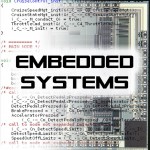In embedded domain, Copying of structure is why avoided in c programming?
Generally In embedded software domain for copying structure of same type people dont prefer to use direct assignment and do that by memcpy function or by doing assignment of each element of structure.
Look at Example
struct student { int roll_no; int age; }; |
struct student exmple1 = {32,15}; struct student exmple2; |
for copying exmple1 into exmple2.. instead of writing direct
exmple2=exmple1; |
people like to use
memcpy(exmple2,exmple1,sizeof(struct student)); |
or
exmple2.roll_no=exmple1.roll_no; exmple2.age=exmple1.age; |
Why?
C has been used in embedded systems for many years, and early C compilers, before ANSI/ISO standardisation did not support direct structure assignment. see this post
Many practitioners are either from that era, or have been taught by those that were, or are using legacy code written by such practitioners.
This is probably the root of the doubt, but it is not a problem on an ISO compliant implementation.
On some very resource constrained targets, the available compiler(or tool chain for some specific platform) may not be fully ISO compliant for a number of reasons, so some people doubt that this feature would be affected so overcome from this problem they prefer to avoid the direct assignment of structure.
One more thing is that when you assign a structure, an implementation need not duplicate the value of any undefined padding bits, therefore if you performed a structure assignment, and then performed a memcmp() rather than == to test for equality, there is no guarantee that they will be equal. However if you perform a memcpy(), any padding bits will be copied so that both memcmp() and == will yield equality.
So it is arguably safer to use memcmp() in all cases (not just embedded), but the improvement is marginal, and not conducive to readability. Better to stick to = and == or memcpy() and memcmp() and not mix the two.
You may like to read this also....
Post comment
Search in this website
our sponsors
latest comments
- venkat on C programming interview questions and answers for freshers
- Ankur on How to configure mail from localhost ( wamp ) using PHP?
- ergVFyd on Huffman Encoding Using Linked List with Source Code
- karthick on how can I write applications in C or C++ for Android?
- karthick on how can I write applications in C or C++ for Android?
Find us on Facebook
Top Authors
Find us on stackoverflow
Polls
My Bookmarks
- Audio/video Recorder & player application based on MATLAB
- check dependency of your binary
- defination of all standard c programming language function
- Great Question-Answer on c programming
- know what your c code means
- Limition of c programming language
- List of all version of c programming language
- Online c compiler
- php freelancing work
- some more stuff on C programming language
- Volatile Keyword in Embedded System
- Write Android application in c language












